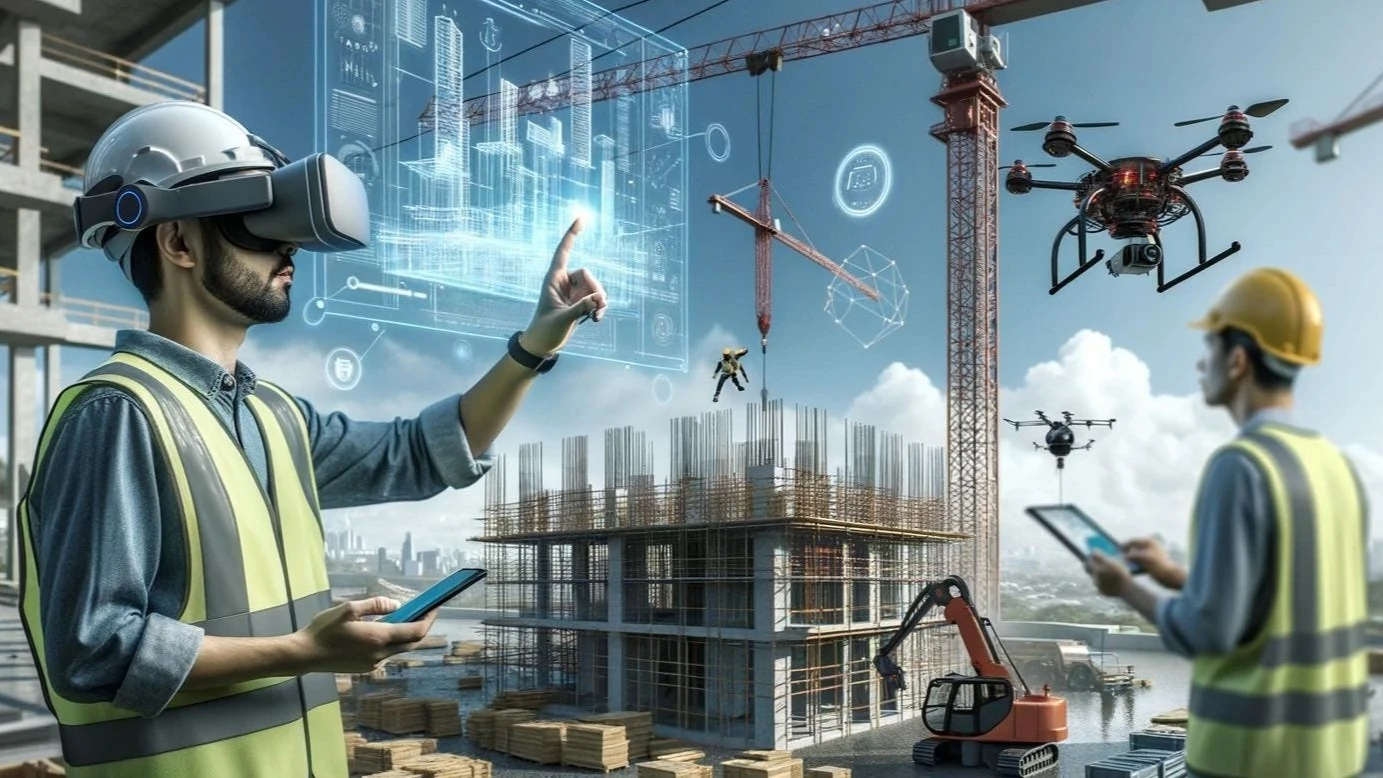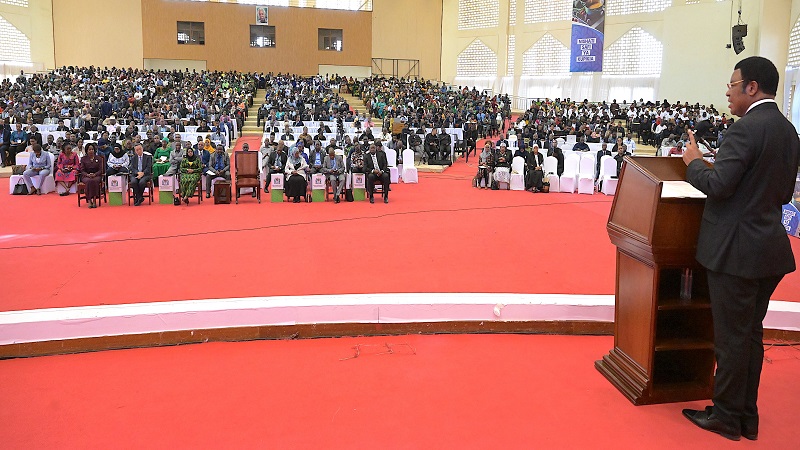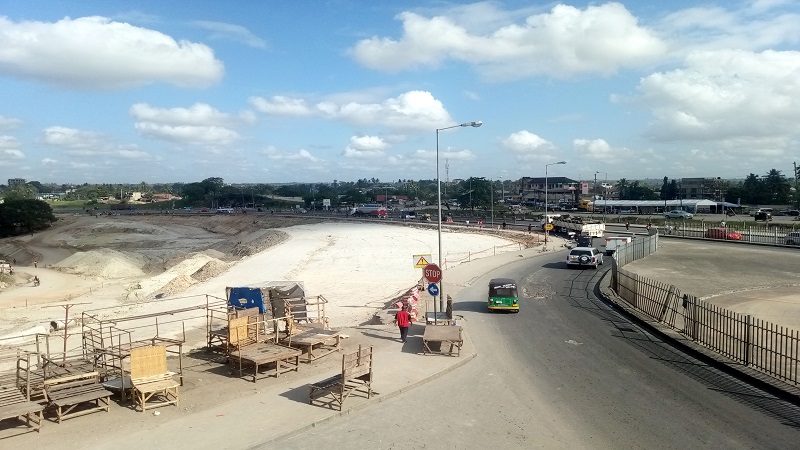Smart building technologies reshape global property market

Smart buildings, also known as intelligent or automated buildings, are not a thing of the distant future anymore.
They are rapidly becoming the new standard in construction and building management, leveraging advanced technologies to enhance efficiency, comfort, and sustainability.
A smart building is a structure that uses automated processes to automatically control the building's operations such as heating, ventilation, air conditioning, lighting, security, and other systems.
According to the research report, "Global Smart Buildings Market Outlook, 2029" published by Bonafide Research, the market is anticipated to cross US$165 Billion by 2029, increasing from US$91.19 Billion in 2023. The market is expected to grow with 10.80 percent CAGR by 2024-29.
Intelligent climate control, personalized lighting, and optimal indoor air quality create a healthier and more comfortable environment for occupants.
By adapting to individual preferences and behavior patterns, smart buildings promote productivity and satisfaction.
Through data-driven insights and automated control, smart buildings minimize energy waste and reduce operational costs. By optimizing resource usage and harnessing renewable energy sources, these structures contribute to sustainability goals and carbon footprint reduction.
While the initial investment in smart building technology may be substantial, the long-term benefits outweigh the costs.
Energy savings, reduced maintenance expenses, and increased property value result in a favorable return on investment for building owners and stakeholders. Smart buildings play a crucial role in creating resilient and sustainable cities.
By reducing energy consumption, mitigating environmental impact, and promoting efficient land use, these structures contribute to a more livable and eco-friendly urban environment.
Smart building systems are inherently scalable and adaptable, allowing for seamless integration with existing infrastructure and future upgrades.
Whether retrofitting existing buildings or designing new constructions, the modular nature of smart technology facilitates customization and evolution over time.
The surge in the adoption of smart buildings in multiple regions is driven by the growing need for better utilization of the building (and building premises) and the need for better resource management in urban environments.
The solution segment is estimated to have gained the largest market share in 2023, while services segment is likely to grow at the fastest rate during the forecast period.
Smart building solutions use IoT technology, which enable efficient and economical use of resources, such as IoT sensors, analytics software, a user interface, and a means of connectivity.
This helps create a safe and comfortable environment for end users. In addition, it uses a range of technology, such as sensors and actuators, to gather activity data on various aspects within the building, which helps analyze and utilize operation more efficiently.
For instance, Shanghai's New Development Bank (NDB) implemented intelligent building solutions to monitor indoor lighting, electric curtains, and windows and witnessed more than 15 percent energy savings.
In today's rapidly evolving urban landscape, characterized by intricate networks of buildings, infrastructure, and technology, ensuring the safety and security of occupants and assets has become an imperative for building owners, operators, and occupants alike.
The rise of smart buildings has introduced a plethora of opportunities to address these challenges, offering integrated solutions that leverage cutting-edge technologies to detect, deter, and respond to a wide array of threats in real-time.
One of the key drivers behind the leadership of safety and security management in the smart buildings market is the multifaceted nature of the risks facing modern built environments.
Physical intrusions, unauthorized access, vandalism, natural disasters, and cyber threats are just a few examples of the diverse array of hazards that buildings must contend with on a daily basis.
Smart building technologies provide a holistic approach to managing these risks, integrating a range of sensors, surveillance cameras, access control systems, and data analytics tools to create a comprehensive security ecosystem.
Implementation services have emerged as a dominant force in the Smart Buildings Market due to the intricate nature of deploying and integrating smart building solutions within diverse built environments. Unlike off-the-shelf products that can be readily deployed, smart building solutions often require extensive customization, integration, and optimization to meet the unique needs and specifications of each building.
This complexity stems from the diverse array of technologies involved, including sensors, IoT devices, automation systems, software platforms, and connectivity infrastructure, which must be seamlessly integrated to deliver the desired outcomes.
Additionally, smart building deployments may involve retrofitting existing buildings with new technologies, coordinating with multiple stakeholders, and navigating regulatory requirements and industry standards.
Implementation services play a critical role in guiding building owners, operators, and developers through every stage of the deployment process, from initial planning and design to installation, configuration, and commissioning.
Commercial applications are leading in the Smart Buildings Market due to the significant cost savings, efficiency improvements, and productivity gains that smart building solutions offer to businesses and organizations.
Commercial applications have emerged as the frontrunners in the Smart Buildings Market owing to the compelling value proposition that smart building solutions present to businesses, corporations, and organizations of all sizes.
Unlike residential or institutional buildings, commercial buildings typically house a myriad of functions, including offices, retail spaces, restaurants, hotels, and entertainment venues, each with unique operational requirements and demands. Smart building technologies offer tailored solutions that address these diverse needs, delivering tangible benefits in terms of cost savings, efficiency improvements, and productivity gains.
North America is a leading market for smart buildings, with the United States and Canada at the forefront of adopting advanced building technologies. The region's market growth is fueled by the increasing emphasis on energy efficiency, sustainability, and the integration of IoT and AI in building management systems.
In the U.S., there is significant demand for smart building solutions in both commercial and residential sectors, driven by regulations like the LEED certification and initiatives to reduce carbon emissions. Smart buildings in North America are equipped with systems for automated lighting, HVAC control, security, and energy management, contributing to operational cost savings and enhanced occupant comfort.
Canada is also advancing in smart building technologies, particularly in urban centers where smart infrastructure is part of broader smart city initiatives.
The North American market is expected to continue expanding, supported by innovations in smart sensors, data analytics, and 5G connectivity.
Europe represents a mature and sophisticated market for smart buildings, with strong adoption across countries like Germany, the United Kingdom, France, and the Nordic countries.
The region is heavily influenced by stringent energy efficiency regulations, such as the Energy Performance of Buildings Directive (EPBD), which mandate the integration of smart technologies to reduce energy consumption and carbon emissions.
Germany leads the market in Europe, driven by its strong industrial base and commitment to sustainability. The U.K. and France are also key markets, with significant investments in retrofitting existing buildings with smart technologies.
Europe's smart building market is characterized by a focus on integrating renewable energy sources, advanced building management systems (BMS), and AI-driven analytics to optimize building performance.
The region is expected to see continued growth as the demand for green buildings and sustainable construction practices increases.
Top Headlines
© 2024 IPPMEDIA.COM. ALL RIGHTS RESERVED

























